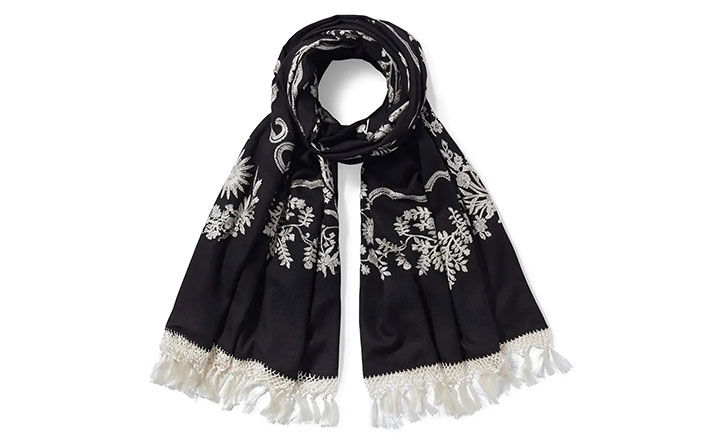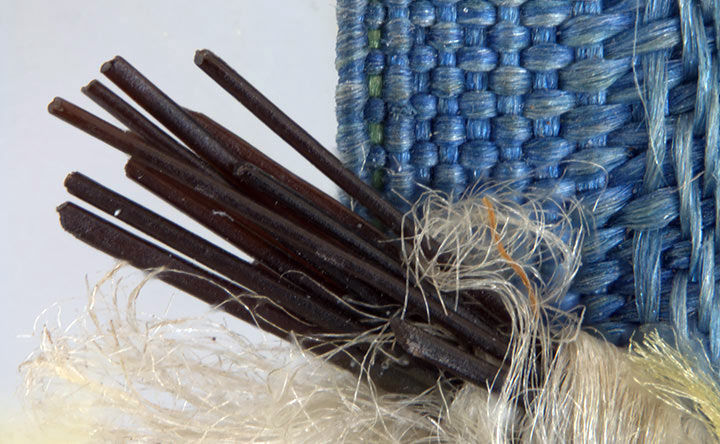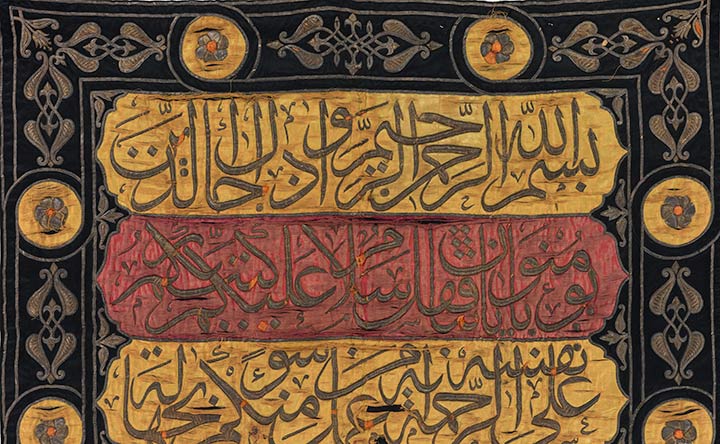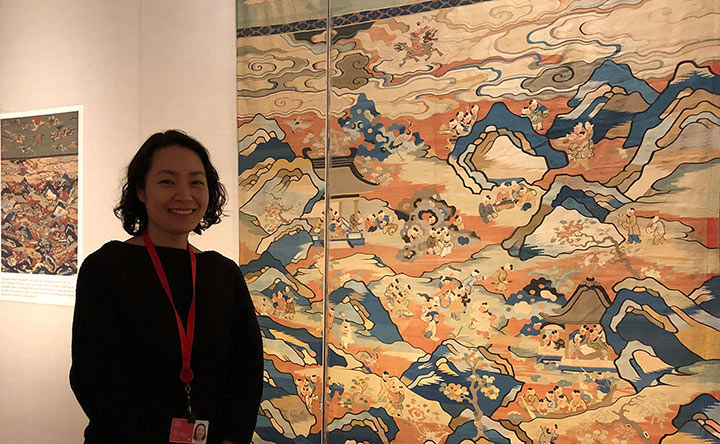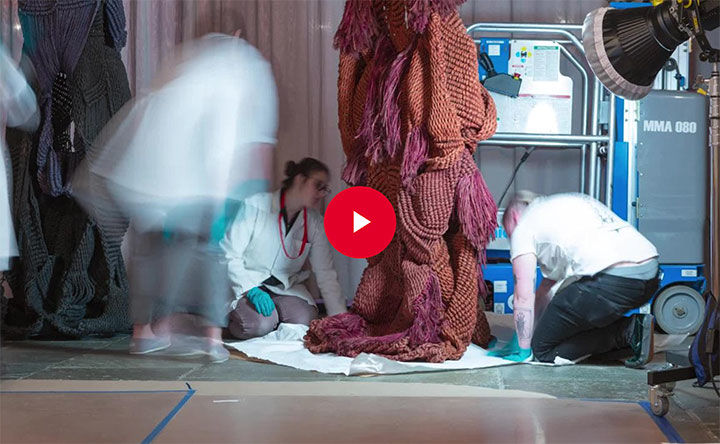
Textile Conservation
The Department of Textile Conservation is responsible for preservation, conservation, technical study, and research of the Museum’s collection of approximately 36,000 textiles in twelve curatorial departments. The encyclopedic collection represents a broad range of textiles including tapestries, carpets, embroideries, costumes, and three-dimensional accessories of all periods and cultures. The Department sets guidelines for care, handling, display and storage of the textiles, and has played a key role in the Met’s initiative to create a dedicated facility for Integrated Pest Management (IPM) with a purpose-built freezer and pre- and post-treatment areas.
Integral to the Department’s practice is the systematic study, documentation, and scientific investigation of textiles. As research advances, the Department is steadily building and refining its digital collection-based database. The latest analytical equipment and methodology together with traditional methods are used for studying The Met’s collection and related textiles, materials and techniques. Thirteen professionals with diverse areas of expertise, as well as fellows, interns, and volunteers comprise the department.
Since its founding in 1973, the Department has contributed to the education of many conservators now in professional practice throughout the world. Committed to the training of future conservators through The Met’s Fellowship and Internship programs, the Department also supports externships and collaborations with conservators already working in the field fostering a worldwide network for collegial exchange.
Go Behind the Scenes
The Department of Textile Conservation became an independent entity in 1973, under the leadership of Nobuko Kajitani, Conservator in Charge, until her retirement in 2003. Kajitani’s object-centered approach emphasized close examination of materials and techniques and the importance of an integrated historical and scientific approach in understanding and preserving the cultural legacies of textiles.
Featured Projects
Celebrating 50 Years of The Met’s Textile Conservation Department
Discover how the idea to design a custom shawl for our department's 50th anniversary emerged, and see the textiles from around the world that served as sources of inspiration.
Conserving Our Textile Heritage
Exactly 50 years ago, in 1973, the Department of Textile Conservation was established in response to the needs of the Met’s core collection of approximately 36,000 textile objects, which are held by different curatorial departments.
Rescuing the Goddess: Conservation of an Appliquéd Silk Tibetan Thangka
Conservators custom-dye fabric for conservation of the appliquéd thangka of the Goddess Kurukulla. A fine example of the skilled work of Tibetan artists who create these highly regarded pieces.
The Sacred and the Modern: The History, Conservation and Science of the Madina Sitara
Conservation of a rare and lavishly embroidered nineteenth-century Sitara that once hung on the Door of Repentance inside the holy Ka’ba in Mecca.
Our Work
Research Projects and Symposia
Learn about the various undertakings of the Textile Conservation staff that contribute to the care and scholarship of the Met’s collection.
Exhibitions
Textile conservators contribute rich content for exhibitions through analytical research with state-of-the-art digital technology.
Meet the Staff
Get to know the people who care for the art.
Dig Deeper
Blog Articles
Read fresh perspectives on textile conservation at The Met.
Videos
Watch videos on textile conservation at The Met—behind-the-scenes work, interviews, lectures, and more.
Stay Connected
Keep up with the latest from Textile Conservation on Pinterest.
Newsletters
See the current and past newsletters.
Pinterest icon tombstone information: Attributed to the Amasis Painter. Terracotta lekythos (oil flask), ca. 550–530 B.C. Terracotta; black-figure, H. 6 3/4 in. (17.15 cm). The Metropolitan Museum of Art, New York, Fletcher Fund, 1931 (31.11.10)
